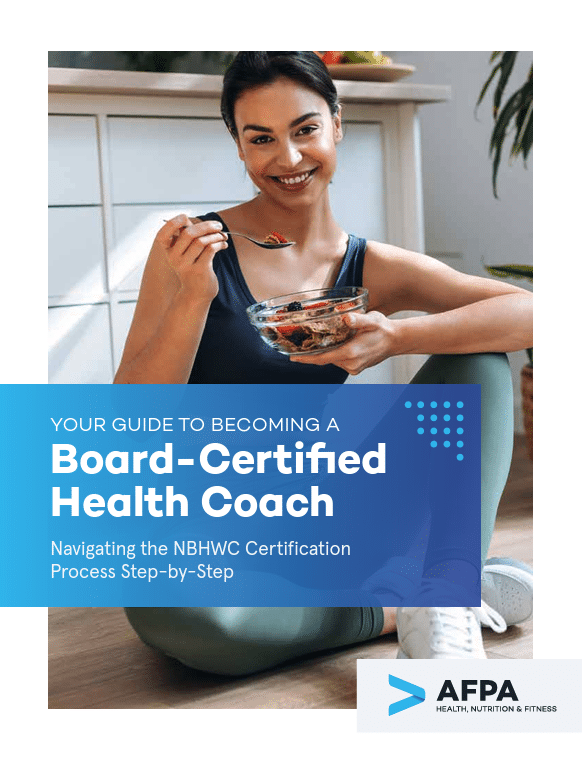In an age where the lines between the digital realm and physical spaces blur more every day, the healthcare industry hasn’t been left behind. Remote healthcare jobs, once a novel concept, have burgeoned into a mainstream mode of healthcare delivery. This rise isn’t just a byproduct of technological advancements; it’s a response to the evolving needs of the modern patient, as well as healthcare professionals yearning for flexible work environments.
This guide aims to be a beacon for health coaches and other healthcare professionals navigating the vast ocean of remote job opportunities. By equipping you with knowledge, tools, and insights, we hope to bridge the gap between your expertise and the countless individuals seeking your guidance remotely.
Benefits of Remote Healthcare Jobs
The healthcare industry is constantly evolving. Among its most recent advancements is the shift toward remote healthcare jobs. This transition not only offers advantages for healthcare providers and patients but is also transforming the way health coaching and other medical services are delivered.
Flexibility, Accessibility, and Work-Life Balance
Remote healthcare jobs bring unparalleled flexibility. Professionals no longer need to commute, which saves time and reduces stress. This allows for a better work-life balance, as practitioners can customize their schedules to fit personal needs, whether that means attending a child’s school event or taking an afternoon break for self-care.
The accessibility of remote healthcare means that patients from various geographical areas can access quality healthcare without location constraints. This is especially crucial for individuals living in remote or underserved areas where specialized medical services may not be readily available.
Reaching a Broader Clientele
For health coaches, the benefits are even more pronounced. Traditional in-person coaching can limit practitioners to their immediate vicinity. However, remote health coaching breaks down these barriers. It allows coaches to expand their reach and cater to a more diverse range of clients from different backgrounds, cultures, and regions. This increases potential revenue streams and provides a richer professional experience.

Learn How to Set Yourself Apart as a Board-Certified Health Coach
Necessary Skills and Equipment for Remote Healthcare Jobs
Being a remote healthcare professional, especially a health coach, requires a unique set of skills and tools. The effectiveness of healthcare delivery depends heavily on the efficiency of the service provider.
Key Skills for Remote Health Coaching
- Communication: Clear and concise communication is paramount. Health coaches must be able to convey complex health concepts in a way that’s easy for clients to understand.
- Time Management: With clients potentially spread across different time zones, efficient scheduling and time management become crucial.
- Tech-Savviness: Remote health coaches need to be familiar with various digital platforms and tools. A basic understanding of troubleshooting can be a huge advantage.
- Empathy: This skill is indispensable. A coach should be able to understand and resonate with their clients’ emotions, needs, and aspirations.
Technological Equipment and Setup
The right tools can make all the difference in delivering effective remote health coaching. Here’s what’s typically necessary:
- Reliable Internet Connection: This is non-negotiable. A stable and fast internet connection ensures smooth communication with clients.
- Computer with Webcam: Video calls form the foundation of remote health coaching. A high-quality webcam can help in making these sessions more personal and effective.
- Professional Microphone: Clear audio can significantly enhance the quality of communication.
- Secure and HIPAA-compliant Software: Confidentiality is paramount in healthcare. Ensure that the platforms and tools you’re using adhere to industry standards and regulations.
- Virtual Clinic Platforms: There are numerous platforms specifically designed for telehealth. These can offer features like appointment scheduling, billing, and electronic health records.
Qualifications and Certifications
Entering the healthcare sector, particularly as a remote health coach, demands a blend of formal education, professional certification, and hands-on experience. But with the diverse array of available certifications, how do you choose the best one?
Basic Qualifications for Remote Healthcare Jobs
Many remote healthcare jobs require at least a bachelor’s degree in a related field. This can serve as the bedrock for a successful career in remote health coaching.
Specific Qualifications for Health Coaches
For those aiming to excel as health coaches, specialized certifications are key. One organization that stands out in this arena is the American Fitness Professionals Association (AFPA). With a mission focused on delivering comprehensive and up-to-date education at an affordable price, AFPA ensures its graduates are armed with industry-leading expertise.
AFPA’s Certified Health and Wellness Coach Program is an excellent starting point for those keen on joining the health coaching field. This program, recently revamped to be more dynamic and relevant, offers a holistic approach to wellness. Moreover, its flexibility allows students to complete their coursework at their convenience, with most finishing in under six months.
For those looking for further specializations, AFPA also offers programs like the Certified Holistic Nutritionist Certification, Personal Trainer Certification, and Certified Autoimmune Nutrition Specialist Certification, among others. Each of these programs, backed by the latest scientific research, ensures that students are best placed to offer expert guidance in their chosen niche.
Enhancing Job Prospects with Additional Certifications
Apart from core qualifications, having additional certifications can significantly bolster one’s professional profile. AFPA has introduced a new online Certified Health and Wellness Coach program which is designed to equip students with a nuanced, whole-person approach to wellbeing. Graduates of this program gain deep insights into health and wellness and position themselves advantageously in a market projected to reach $34.81 billion by 2031.
But the benefits of being an AFPA-certified Health and Wellness Coach extend beyond the financial. Coaches can improve their own personal health and lifestyle, empower others to reach their wellness goals, and carve a niche for themselves, doing something they’re genuinely passionate about.
Finding Remote Health Coaching Jobs
The surge in telehealth and remote healthcare services has led to increased opportunities in the field. But how does one go about finding these jobs? Here’s a guide to help navigate this burgeoning job market.
Networking
The age-old adage “It’s not what you know, but who you know” holds true even in the digital age. Building and maintaining professional connections can open doors to opportunities that might not be publicly advertised.
- Virtual Networking Events: With the rise of remote work, many professional events have moved online, including industry-specific events on LinkedIn. These virtual seminars, webinars, or conferences can be invaluable for making connections.
- Social Media Groups: Join health coaching or healthcare-related groups on platforms like Facebook or LinkedIn. These forums can be rich sources of job leads, advice, and resources.
Job Search Platforms
Leverage the power of the internet by using job search platforms.
- General Platforms: Websites like Indeed, Glassdoor, and LinkedIn regularly list remote health coaching jobs. Set up job alerts to be notified of new opportunities.
- Specialized Platforms: Websites such as FlexJobs and Health eCareers cater specifically to remote or healthcare-related jobs, ensuring more relevant job listings.
Company Websites
Sometimes, the direct approach is best. Many healthcare companies or wellness organizations will post job openings on their own websites, especially in the ‘careers’ section. Regularly checking these sections of reputable healthcare companies can yield promising results.
Freelancing
The gig economy is thriving, and health coaching is no exception.
- Offering Services: Start as a freelance health coach, which allows you to set your own rates, choose your clients, and manage your own schedule.
- Freelancing Platforms: Websites like Upwork and Fiverr can be starting points. Create a compelling profile, showcase any certifications, and start bidding on relevant projects or job listings.
Application Process
The application process for remote positions, while reminiscent of traditional job applications, comes with its own unique set of expectations and practices.
Creating a Standout Resume and Cover Letter
- Tailored Content: Given the digital nature of remote jobs, emphasizing skills relevant to online operations, such as proficiency with digital tools or experience in virtual coaching, can be advantageous.
- Highlight Certifications: If you’re AFPA-certified, be sure to prominently display this on your resume. The holistic training and industry-recognized certification can give you a leg up against competitors.
- Engaging Cover Letter: Personalize each cover letter for the position you’re applying for. Delve into why you’re a perfect fit for the role and how your skills, especially those gained from programs like those offered by AFPA, can benefit the employer.
Succeeding in Virtual Interviews
- Technical Preparedness: Ensure your internet connection is stable and that your video and audio systems work flawlessly.
- Professional Environment: Even if you’re at home, pick a clutter-free space with good lighting to give a professional impression.
- Practice Commonly Asked Questions: Prepare answers for commonly asked interview questions, and be ready to discuss your training, experiences, and any unique attributes you bring to the table, like specialized AFPA certifications.
Setting Up a Successful Remote Health Coaching Practice
Transitioning to or starting a remote health coaching practice requires planning, the right tools, and a professional demeanor.
Maintaining a Professional Online Presence
- Personal Website: Establish a sleek, user-friendly website that showcases your services, client testimonials, and credentials, like your AFPA certifications.
- Social Media Engagement: Regularly update platforms like LinkedIn, Instagram, and Facebook with health tips, articles, or client success stories to engage and attract potential clients.
Digital Tools for Appointment Scheduling and Client Management
- Scheduling Platforms: Tools like Calendly or Acuity Scheduling can automate your appointment bookings, reminders, and cancellations.
- Client Management Systems (CMS): Platforms such as MyFitnessPal or Healthie can help in tracking client progress, maintaining records, and providing timely feedback.
Conducting Effective Coaching Sessions
- Video Conferencing Tools: Utilize reliable platforms like Zoom, Microsoft Teams, or Google Meet for seamless video coaching sessions.
- Interactivity: Use digital whiteboards, shared documents, or screen-sharing to make sessions engaging and interactive.
- Continuous Learning: Keep updating your skills and knowledge. Consider enrolling in advanced courses or specialties, like those provided by AFPA, to offer a broader range of services to your clients.
Companies Regularly Hiring Remote Health Coaches
Some companies that have regular openings for remote health coaches include:
- Headspace – The aim of Headspace is to make mental health support accessible to everyone, no matter their background or experience.
- HIIP Nutritional Fitness – a company that offers an advanced, effective method for weight loss and maintenance.
- Noom – A consumer-led digital health company that helps people live healthier, happier lives.
- Redesign Health – Redesign Health is a company striving to innovate the healthcare industry and empower people to live healthier lives.
- Revero – Revero is a virtual-first health technology startup committed to reversing chronic and autoimmune diseases.
- Spring Health – Spring Health is working to “revolutionize the mental health industry” by eliminating barriers faced by employers and their employees regarding mental health and helping them get connected with high-quality providers.
- MyMee – MyMee’s mission is to transform lives and revolutionize how we scale root-cause medicine.
- Vesta Healthcare: A company that offers in-home healthcare services such as care planning, custom mobile technology, caregiver matching, and case management to elderly clients in order to improve their health and wellbeing.
- Zoe Global Ltd – a nutritional science startup whose mission is to “help people eat with confidence”.
- Arootah – Devises pragmatic strategies that stimulate growth, inspire peak performance, and strengthen accountability.
- Atomic VC – A pre-launch company building a novel fertility business aimed at helping Gen-Z women put time on their side.
Main Takeaways
As we draw our exploration to a close, let’s recap the compelling reasons and advantages of plunging into remote health coaching:
- Boundless Flexibility: Remote healthcare jobs offer unparalleled flexibility, allowing professionals to design a work-life balance tailor-made to their individual needs.
- Broader Reach: Distance is no longer a barrier. Health coaches can guide, assist, and inspire individuals from all corners of the world, diversifying their clientele and enriching their professional experiences.
- Economic and Personal Growth: The economic benefits, coupled with the chance to continually evolve both personally and professionally, make the world of remote health coaching incredibly enticing.
Now, more than ever, is an opportune time for health coaches and healthcare professionals to delve into remote job opportunities. The demand is undeniable, and the rewards manifold. As you contemplate this leap, remember the tools and strategies we’ve outlined to make your transition seamless.
Begin Your Remote Journey: Don’t wait for tomorrow. Start your remote job search today to prepare for the growing realm of remote health coaching.
Learn How to Stand Out as a Top-Tier Health Coach in 5 Steps




